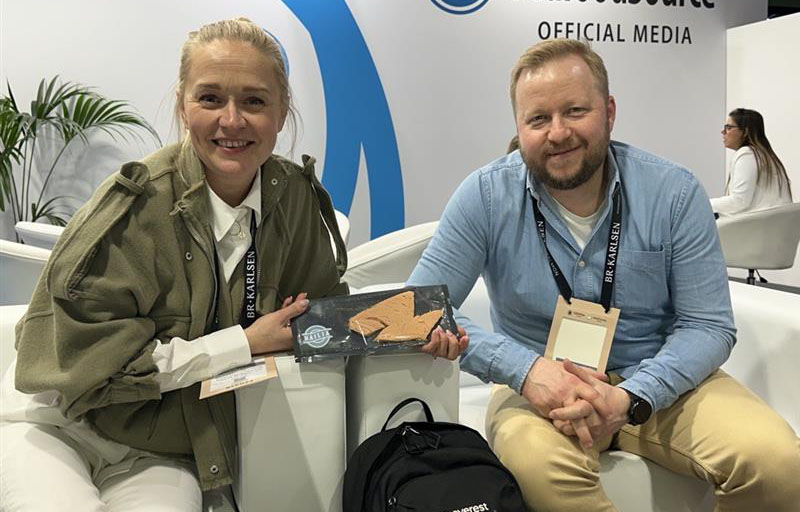Karkkila, Finland-based food technology company Hailia is seeking to expand from a focus on pelagic fish byproducts to a variety of new species, including farm-raised salmon, using its award-winning technology.
The company, founded in 2021, has developed an innovative system to redirect fish-processing byproducts toward value-added use, utilizing leftover fish chunks, strips, bites, and trimmings into valuable protein and turning them into a product resembling cooked fish fillets with a "mouthfeel characteristic of fish," according to the company.
Its first product was made from Baltic herring, and through its Small Fish Products brand, used its patent-pending technology to valorize what are traditionally low-value seafood byproducts.
“We see ourselves as a seafood-tech company that focuses on underutilized fish, especially side streams from both red and white fish,” Hailia CEO Michaela Lindstrom told SeafoodSource at the 2024 Seafood Expo Global/Seafood Processing Global, taking place from 23 to 25 in Barcelona, Spain.
Hailia’s technology systems also allow for additional processing and integration of fish byproducts into certain foods such as soups, sandwich fillings, pasta, and sauces.
At this year's edition of the expo, Hailia has been seeking out new partnerships with international seafood companies.
“We are mainly looking for partners because we see ourselves as an enabler,” Lindstrom said. “We're looking for partners because we want to focus on the technology and developing it further. We want to find people who might be interested in getting a better profit from their side streams when making fillets in their factories.”
Reusing byproducts serves not only as a productive alternative, according to the company, but also as a sustainable option for companies aiming to lower their carbon footprints.
“Money-wise, it's great, you're going to get better profit, and [it is also] so good for the whole environment,” Lindstrom said. “This is especially true when it comes to the big producers, because they want to have as much food made from the healthiest possible sources nowadays."








